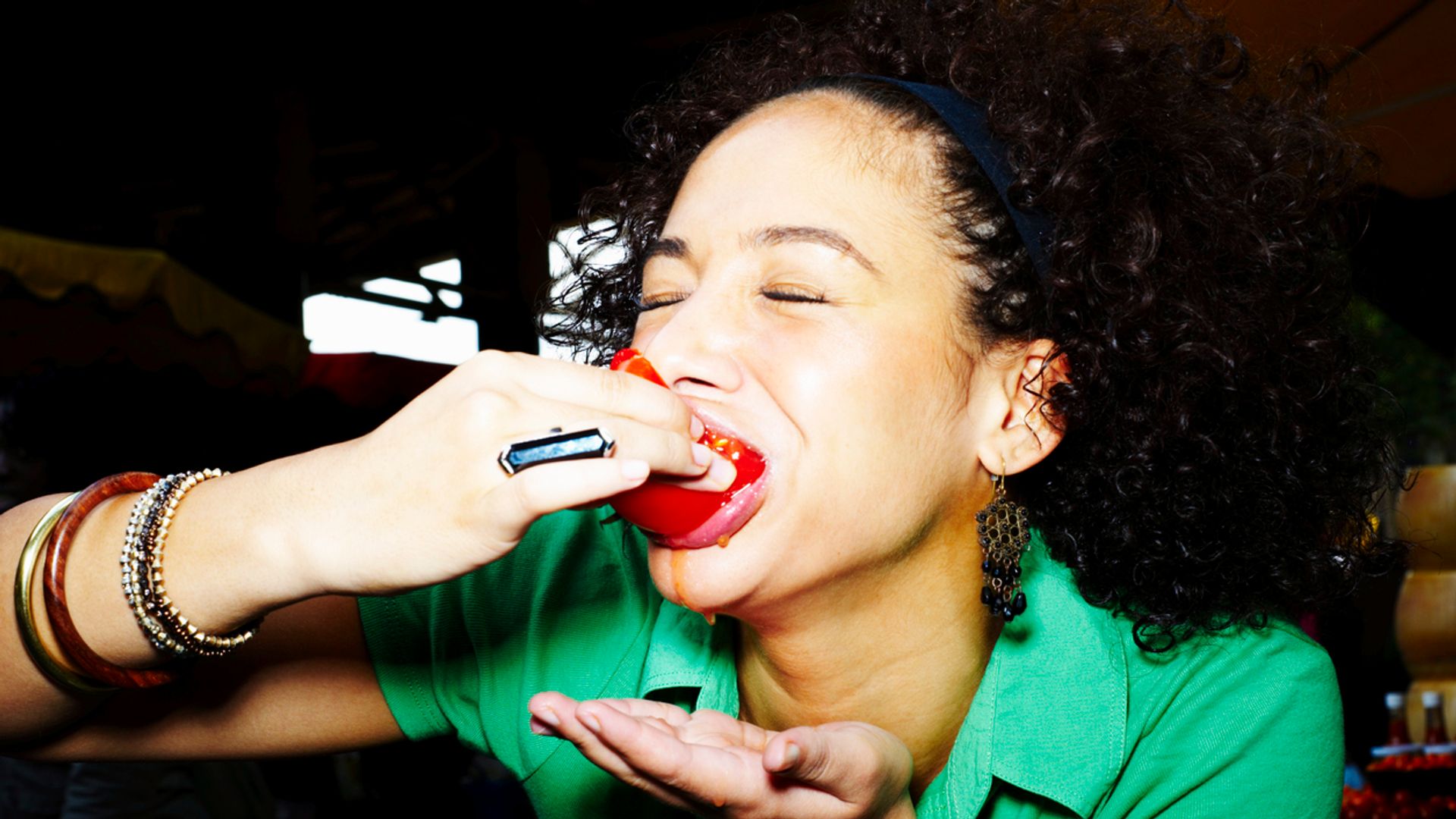A vegan diet may reduce your biological age, according to a new study in the medical journal BMC.
Scientists studied 21 sets of adult identical twins, with one of each pair eating a vegan diet for eight weeks. The vegan twin was found to have reduced methylation in their DNA, which is a marker of biological ageing.
So what is the optimal diet for anti-ageing, according to science?
There are different interpretations of ageing.
“There’s lifespan, which is how long you live, and healthspan, which is how well you live – because who wants to live long and live poorly?” says Dr Linia Patel, a women’s health dietitian, performance nutritionist, and author of Food for the Menopause.
Breakfast – a chilled-out 10 minutes
Slowing down for breakfast in the morning, as difficult as that sounds, could help your body digest nutrients better, says registered dietitian Laura Clark.
“If you don’t feel you can stomach breakfast, can you at least sit down with your cup of coffee for 10 minutes?” she asks.
Multiple studies have linked stress, both short-term and long-term, with a reduction in absorption of nutrients and phytochemicals (like antioxidants), which are crucial for ensuring cells stay healthy.
By taking time to sit down and eat, you can reduce your stress levels.
“We have to start to think about food not just in the context of what we’re eating, but how we’re eating it. That’s where you get the biggest wins, I think, in terms of anti-ageing,” says Ms Clark.
Lunch – a rich rainbow of veggies
When it comes to what you actually eat, Dr Linia Patel says colour is the key to an anti-ageing diet.
“Those phytochemicals we find in the rainbow of plants have benefits that reduce oxidative stress.” Oxidative stress is damage caused to cells by chemicals called free radicals and it is known to have an impact on ageing.
The good news is those phytochemicals are easy to spot. The richer the colour of the fruit or vegetable, the more phytochemicals it contains – but that’s not all.
Read more from Sky News:
Video game performers are on strike – what you need to know
Man who ate toast for five years inspires high-tech spoon
Getting enough fibre helps keep your gut healthy, which helps balance your body out. In fact, scientists have now linked gut health to mental health problems like anxiety and depression – poor gut health led to increased levels of the illnesses.
“Our gut bacteria love fibre and we find fibre in wholegrains but also in beans, lentils and plant-based foods that are different colours,” she says, before recommending we also take a look at our sugar intake.
Consistently eating lots of added sugar and refined carbohydrates may increase inflammation in your body, which has been linked to many diseases and may shorten your health and lifespan.
Dinner – less than you think
Dr Hussain Al-Zubaidi, the Royal College of GP’s physical activity and lifestyle lead, says an anti-ageing diet is all about what you don’t eat.
“One key area that has the most evidence [for longevity] is caloric restriction,” he says.
“A small but significant reduction in calories each day makes the body […] go, ‘OK, we’ve got less energy coming in.
“We now need to do some mopping up, some cleaning. We need to correct any areas [with problems], we need to clean up any junk cells or dead cells’. And this process actually is really beneficial for longevity.”
Read more from Sky News:
Mouth bacteria ‘melts’ some cancers
This theory is backed up by multiple studies published in places like the journal Nature Ageing.
Dr Al-Zubaidi says the late Dr Michael Mosley’s 5-2 diet, which promotes intermittent fasting, is a good example of caloric restriction.
Dessert – ‘Don’t worry about the doughnuts’
The final thing each dietitian said independently was that moderation is key – including when you’re implementing ideas like these.
“We have limited resources and time and headspace,” says Ms Clarke. “Stop with the self-criticism all the time, don’t worry about the doughnuts.”
Be the first to get Breaking News
Install the Sky News app for free
Instead, they all say to look at what small changes you can make in your diet that you can consistently keep doing.
Keep up with all the latest news from the UK and around the world by following Sky News
“Make small swaps to start off with and build on that,” said Dr Al-Zubaidi.









